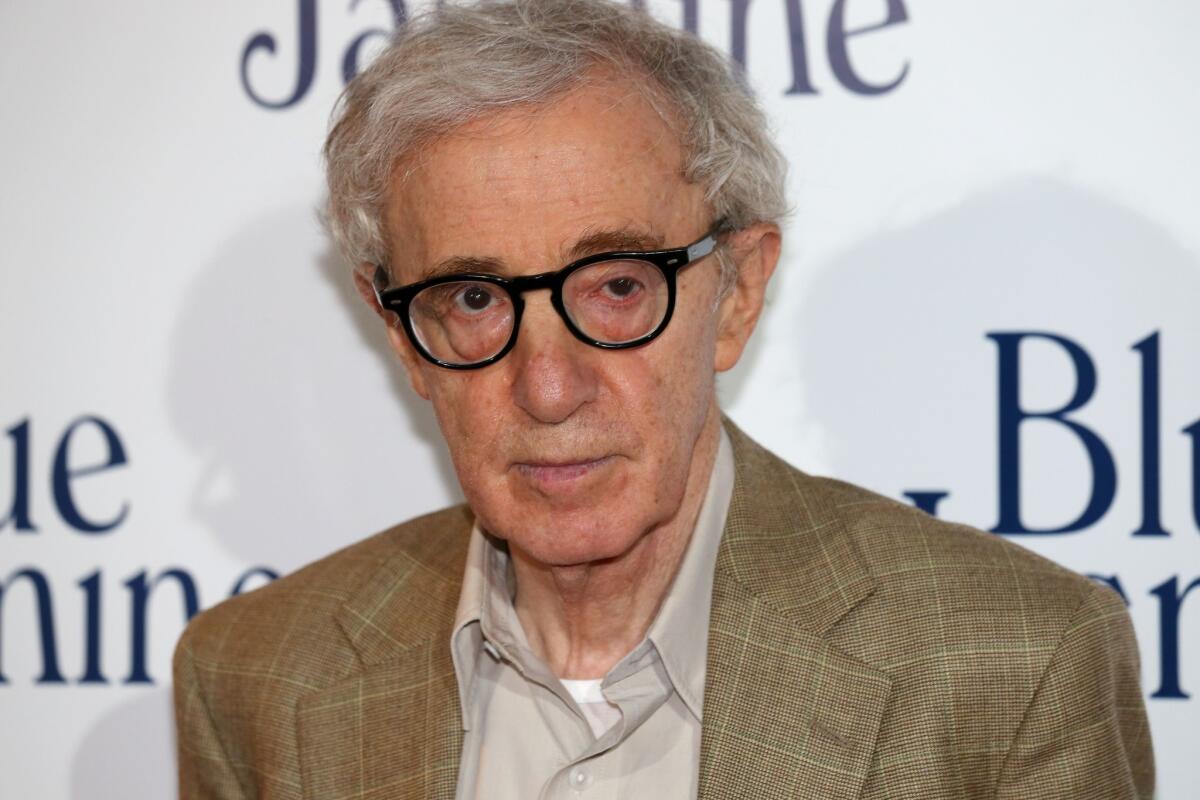Dylan Farrow or Woody Allen? Does it really matter whom we believe?

In the long run, it doesn’t matter whether you believe the tragic story of Dylan Farrow, who alleges that her father Woody Allen sexually assaulted her 20 years ago when she was 7 years old.
Nor does it matter whether you believe Woody Allen, who was never charged with a crime, and who has steadfastly maintained his innocence.
This scandal is and will remain a case study in frustration. We will never know for sure what happened. And yet our impulse is to take sides.
But to what end?
To deprive Woody Allen of another Oscar, when he already has won four?
To let other victims of sexual abuse know that the world takes them seriously despite the fact that these charges were taken very seriously indeed when they first arose?
On Saturday, New York Times columnist Nicholas Kristof gave over his well-read blog to Dylan Farrow, providing her a powerful platform from which to chastise Hollywood for its embrace of a man she says victimized her. (He also devoted his Sunday print column to the story.) For years, Kristof has exposed the plights of victimized girls the world over, and I admire him for that. His disclosure that he is personal friends with Dylan’s brother Ronan Farrow, and their mother, Mia Farrow, casts a slight conflict-of-interest tinge over this story. But that is a minor point.
Kristof wrote that it was time for Dylan Farrow to have her say, since Allen was honored last month with a Golden Globes lifetime achievement award, and may win an Oscar in March for “Blue Jasmine”:
Look, none of us can be certain what happened. The standard to send someone to prison is guilt beyond a reasonable doubt, but shouldn’t the standard to honor someone be that they are unimpeachably, well, honorable?
Yet the Golden Globes sided with Allen, in effect accusing Dylan either of lying or of not mattering. That’s the message that celebrities in film, music and sports too often send to abuse victims.
That last sentence is indisputable. But honoring Allen is certainly not the equivalent of accusing Dylan of lying or not mattering, and it is disingenuous to suggest so. In 1993, Dylan’s accusations were taken very seriously by her mother, by doctors, by prosecutors. Allen was investigated for months and prosecutors chose not to file charges.
Also, Dylan Farrow has had her say, and she has had it very recently. Only four months ago, Vanity Fair published a long profile of Mia Farrow and her children by Maureen Orth. In that piece, Dylan recounted her allegations against Allen in detail, and her enduring trauma, including the death of her 19-year-old sister Tam in 2000.
With the Golden Globes in the rearview mirror, the scandal has been revived again in time for the Oscars. It seems to be the culmination of a Farrow family plan to destroy or at least tarnish the man they blame for blowing up their family, first by allegedly sexually abusing Dylan, then by taking Mia Farrow’s daughter, Soon-Yi Previn, into his bed in 1991, when she was 19 and he was 56. I can’t blame the Farrows for loathing Allen.
In her open letter, Dylan Farrow wrote that Allen’s Oscar nomination felt like a personal rebuke, as if the world were telling her that what she said happened did not happen. She wonders how Allen’s stars, like Alec Baldwin and Cate Blanchett, would feel if it were their daughters Allen had been accused of molesting. (Both stars, when asked, refused to take sides, insisting it is a family matter.)
Farrow came forward again, she wrote, to give hope to other victims of sexual abuse:
Last week, Woody Allen was nominated for his latest Oscar. But this time, I refuse to fall apart. For so long, Woody Allen’s acceptance silenced me. It felt like a personal rebuke, like the awards and accolades were a way to tell me to shut up and go away. But the survivors of sexual abuse who have reached out to me -- to support me and to share their fears of coming forward, of being called a liar, of being told their memories aren’t their memories -- have given me a reason to not be silent, if only so others know that they don’t have to be silent either.
Coming forward again may empower Dylan Farrow, 28, in as much as it puts unsavory accusations against Woody Allen front and center at a time when Oscar voters are casting ballots.
And perhaps, as she suggests, her forthrightness will inspire other victims of sexual abuse to come forward, or seek help. Children who have been sexually abused need support, and more important, they need to be believed by those who matter most to them. At some point, they will have to confront the reality of whether molestation can be proved, prosecuted and punished.
The task of the victim, particularly in a murky case such as this one, is to find a way to move forward, to heal the wounds, to seek emotional health.
If your chosen path is to keep the accusations alive, and your family friend is a sympathetic New York Times columnist, more power to you. But Allen has powerful and articulate defenders as well.
Dylan Farrow should be free to raise as much hell as she wants about Hollywood honoring the man she says abused her when she was a defenseless child. But she surely understands that no accused molester who maintains his innocence -- and who has never been charged with a crime -- is going to sit idle while his name and reputation are being trashed. On Sunday, through a representative, Allen called her open letter “untrue and disgraceful.”
I earnestly believe that the contours of Farrow’s life are not going to change one bit if Woody Allen wins another Oscar. His disdain for awards is legendary and, at 78, his place in Hollywood history is already assured.
If Farrow’s goal is to make sure the asterisk about Allen’s personal life never goes away, she’s succeeded at her task.



